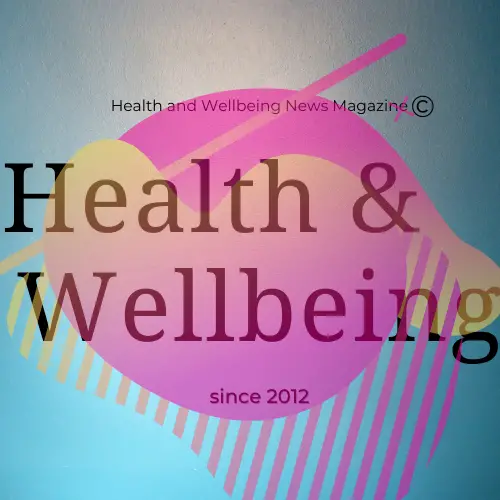You are exposed every single day to numerous toxins which your body has to process and get rid of in order to maintain it’s normal functions. However, when the toxic load becomes greater than you are able to cope with, toxins accumulate in your organs and body tissues which may eventually lead to a deterioration in your health and well-being.
Toxins come in many forms and this name applies to any substance which is detrimental to the normal function of your body and health:
- Chemicals such as pesticide, herbicides, insecticides, artificial fertilisers.
- Antibiotics.
- Food additives,artificial colourings and flavourings.
- Stimulants in tea, coffee, cola and fizzy drinks.
- Toxins in contaminated food.
- >Alcohol.
- Chemicals added to your drinking water.
- Cleaning products and personal care products containing petro-chemicals and aluminium.
- Mercury fillings.
- Pharmaceutical and recreational drugs.
- Traffic and industrial pollution.
- Free radicals from burnt food, heated oils and fats, cigarette smoke, sunshine, petrol fumes, excess exercise, stress and liver function.
- Undigested food or partially digested food which accumulates in the intestines where it putrefies releasing toxins.
- Yeasts such as Candida Albicans.
An accumulation of toxins can place your liver, kidneys, lungs, skin and bowel under stress as they struggle to neutralise and eliminate toxins. Your liver is the main organ of detoxification and is like a chemical processing factory. It takes toxins such as coffee, or drugs and converts them into other substances called metabolites. Sometimes these metabolites can be more toxic than the original substance and can cause free radical damage if they are not broken down by antioxidants. “Free radicals” are unstable molecules of oxygen which can oxidise neighbouring molecules, leading to cellular damage which triggers cancer, inflammation, artery damage and ageing.
Antioxidants neutralise free radicals.
If you have a diet rich in vitamins A, C, E Selenium and Zinc then you may be getting enough antioxidant nutrients. However, most of us do not eat enough vitamin rich foods to supply our antioxidant needs and so we accumulate toxins in our system. It used to be thought that eating 5 portions of fruit and vegetables daily was enough, but with increasing levels of toxic stress, it’s more likely that we need 5 to 7 portions of a wide variety of fresh fruit and veg.
By following a detox regime you will give your system a chance to rest from processing the normal toxins which you take in each day and to concentrate on eliminating accumulated toxins in your body. As you can see from the list above, it’s almost impossible to avoid exposing your body to some toxins and so a detox at the start of every season can help keep your system in tip top condition.
Your entire system can benefit from a period of detox and improve:
- Skin and hair condition
- Your digestion
- Your immune function, reduce inflammation and allergic reactions
- Your energy levels
- Your clarity of thought and mental processes
- Quality of sleep
- Liver and kidney function
- The taste and your enjoyment of food
- Weight control
During a period of detox, your body is having a good “spring clean” and chucking out accumulated rubbish. This can cause temporary reactions such as:
- Acne, rashes or other skin problems
- Aching muscles or joints
- Fatigue or heaviness
- Headaches, blocked nose and excess mucous production
- Bad breath or coated tongue
- Flare up of old symptoms
- Constipation
- Depression
In order to minimise these reactions it is important to drink at least 2 litres of filtered or bottled water daily. You may also take detox baths using Epsom salts or saunas to help your skin eliminate. Don’t undertake too drastic a detox process such as water fasting. It is safer and kinder to your system to follow the guidelines below. Do walk daily and do gentle stretches, but do not do vigorous exercise.
Which detox diet?
If you have a weekend in which you can be free from normal stresses and pressures then you might like to try a 2 day raw fruit and vegetable diet.
On a raw fruit and vegetable detox you may have fruit or fruit juice in the morning. A vegetable salad for lunch and either a fresh fruit or vegetable salad in the evening. You can snack on fruit and have fruit or vegetable juices during the day. If you have candida, then you would be better to avoid fruit and fruit juices.
Choose vegetables for juicing such as beetroot, cauliflower, celery, lettuce, Chinese leaves, chicory, fennel, green pepper, broccoli, onion and radish. The best fruits are apples, pears, apricots, blackberry, blackcurrant, cranberry, raspberry, grape and peach.
On a Brown Rice Detox you may include cooked brown rice, steamed vegetables and plenty of fruit and vegetable juices between meals.
If you can’t devote time to resting whilst you detox, you can still help to cleanse your system by following a whole food diet. This is a much gentler form of detoxing and can be fitted in to your life with a little forethought and preparation. A whole food detox can also be continued for up to a month at a time.
On a Whole Food Diet you need to eat lots of fruit, raw or steamed vegetables, nuts, seeds and their oils, legumes, sprouted beans and seeds, and whole grains such as rye, quinoa, millet and barley. You need to drink 2 litres of filtered or bottled water daily plus fruit and vegetable juices and herb teas.
You should completely exclude tea, coffee, cola drinks (including decaffeinated), chocolate, alcohol, tobacco, drugs, meat, fish, dairy produce, wheat, refined foods, fried food, sugar and salt.
If you already have a reasonably healthy diet and lifestyle and you are in good health, you might like to try the following –
Five Day Detox Regime
- Day 1. Follow a whole food diet as outlined above.
- Day 2. Eat raw fruit and raw or lightly steamed vegetables, fruit and vegetable juices.
- Day 3. Eat fresh fruit, and fresh fruit and vegetable juices only.
- Day 4. Eat raw fruit and raw or lightly steamed vegetables, fruit and vegetable juices.
- Day 5. Follow a whole food diet as outlined above.
You can assist your liver with the detox process by taking a “liver flush” first thing in the morning to help stimulate your liver function.
In a blender combine the following ingredients and drink slowly.
- 200ml organic apple juice
- Juice of 1 lemon
- 1 to 3 cloves crushed garlic
- 1 cm grated ginger root
- 2 tablespoons extra virgin olive oil.
If you can’t face drinking a liver flush, there are proprietary products which can also help stimulate your system to eliminate.
Milk thistle contains a Bioflavanoid called Silymarin, which has liver protective and liver stimulating activity. Silymarin is a powerful anti-oxidant and is able to trigger re-growth of liver cells to replace those damaged by disease, alcohol and other toxic substances.
Skin brushing with a natural bristle brush will help to stimulate your lymph system and remove dead skin cells, leaving your skin glowing. Brush with firm even strokes from tips of fingers and toes towards your heart.
Massage can also help to stimulate the lymph system assisting in the elimination of toxins.
If your bowel is sluggish you may find it helpful to take psyllium husks or slippery elm which will cleanse your bowel, pulling toxins away from the walls of your intestines. It is also useful to supplement with probiotics in order to replace the friendly bacteria in your bowel. Supplements such as Lepicol contain psyllium husk, probiotics and prebiotics which help your bowel to re-populate with friendly bacteria.
A good quality anti-oxidant supplement will assist in the elimination of free radicals and should form part of your normal supplement regime.
To end your detox you can gradually reintroduce more food types into your diet. Begin with fish and chicken, pulses and legumes. We recommend that as a matter of course, you should always avoid fried, processed and refined foods.
Stop polluting your system!
Now that you’ve spent some time de-toxing your body, it might be a good time to re-think your diet and lifestyle. We’d like to acknowledge the work of Gillian McKeith who publicised the “dirty dozen” toxins to avoid, here is her list with some additional comments of our own:-
- Fizzy Drinks. These have no nutrients in them whatsoever. 1 can of fizzy drink can contain 6 to 7 teaspoons of sugar, plus caffeine and additives. Phosporic acid puts the fizz into fizzy drinks. Because it is an acid your body has to neutralise it. It does that by leaching calcium from your bones. Research has shown that people in their twenties are developing osteoporosis due to the high consumption of fizzy drinks.
- Aspartame. So called diet sodas may contain aspartame. Once upon a time aspartame was listed by the Pentagon as a biochemical warfare agent. Today it is sold commercially under the names of NutraSweet and Canderel. Scientists have shown that aspartame can produce a range of disturbing adverse effects including headaches, memory loss, mood swings, seizures, multiple sclerosis and cancer.
- Saturated Fats. Hard saturated fats clog up your arteries, 20% of men die from heart disease. Avoid chocolate, confectionary, cakes and biscuits. Instead eat oily fish, nuts, hemp seeds, avocados and cold pressed oils.
- Salt. There is enough salt naturally occuring in your food to meet all of your body’s needs. We only need 6gm per day. Check the salt content and avoid packaged food with salt added. Too much salt in your diet can cause aching joints, excess sweating, water retention, swollen ankles, heart disease and heart attack. 35,000 people die every year from heart attack. Throw away your salt pot!
- Takeaways and ready meals. In Britian we consume 2 billion fast food meals every year! If you haven’t cooked it then you don’t know what’s in it. A Tikka Masala can contain sugar, salt, fat, preservatives and colours. 2 poppadums contain 11gm of fat, a bag of prawn crackers 12gm of fat. Chinese food may contain added sugar and MSG (a nervous system exciter). A portion of fish and chips may contain 65gm of fat.If you have a chip shop meal once a week for a year you will have consumed around 7 litres of deep fried oil. Heating oil changes it’s chemical construction and makes it carcinogenic, it also clogs up your arteries.
- Sugar. Sugar has no nutrients in it whatsoever. It gives a false boost of energy and surge in blood sugar levels which just as quickly falls away, leaving you feeling tired. Excess sugar turns to fat and can lead to type 2 diabetes. 1.8 million people in the UK have type 2 diabetes and the figure is rising. Sugar is concealed in food, a can of baked beans may contain 4 teaspoons of sugar, a microwave meal 5 teaspoons, a fruit yogurt 7 teaspoons. There is no need to add sugar to your food, we get all the sugar we need naturally from eating fruit.Sugar also interferes with chemical processes in the brain leading to dull thinking, poor attention and memory. Leading nutritionist Professor Patrick Holford has coined the phrase “sugar makes you stupid”. Check labels on products before you buy, if sugar, maltose, sucrose or glucose is high on the list – don’t buy!
- White bread. 70% of the bread we eat is white. Food is not naturally white, if it is then you can be sure that all of the natural nutrients have been stripped out of it. White bread has chemical improvers in it and double the yeast content of whole grains. It can lead to digestive problems, bloating, gas and candida (yeast overgrowth). Because there is no fibre in white bread it can cause constipation. Try squashing a slice of white bread in your hand, it will form a ball. Now imagine that solid ball going through your system!Although white bread has to have vitamins added to it to replace the ones removed in the milling process, your body cannot recognise them as vitamins. Because they are synthetic your body treats them like any other synthetic substance and gets rid of it as quickly as it can. Processed wheat has also been shown to cause neurological disorders. Replace it with wholegrain bread or rye bread.
- Processed meat. Processed meat can be derived from almost any part of an animal – it’s ears, eyes, snout, hoof, blood. The carcass of a chicken can be compressed into a sludge and then reformulated into “meat”. Gelatine, salt and preservatives are added and usually around 30% water.If you eat meat, then go for organic, free range meat. It is more expensive, but you do at least know that you are eating proper meat from an animal which has been naturally fed and not pumped full of growth hormones and anti-biotics.
- Crisps,snacks and chocolate. Crisps are full of transfatty acids, hard fats which clog the arteries, leading to high blood pressure and heart disease. Pork scratchings are made from pig fat, salt and are deep fat fried! A triple dose of disease inducing “food”.Most crisps and snack products are laden with salt, artificial flavourings and preservatives. In the U.K. we eat ½ million tonnes of chocolate a year. It is empty calories which nutritionally do nothing for you. It contains sugar which turns to fat. Eating a bar of chocolate a day for a year equals a 2 stone weight gain. It takes 45 minutes of hard cycling to burn off the fat in every chocolate bar you eat.Chocolate contains caffeine which is a stimulant to your adrenal system, it also contains theobromine and theophyline which are both addictive. Your addiction makes the chocolate manufacturer’s bank manager very happy!
- Alcohol. Drinking 1 pint of beer a night equals 1000 calories a week, which equals 1 stone in weight in a year. Alcohol is okay in moderation, a glass of red wine (pub measure) a night can help your heart. However, drinking in excess of the recommended number of units is not good for you. Women should drink no more than 14 units per week and men no more than 21 units per week.Binge drinking (more than 2 units) is harmful to the liver and can lead to cirrhosis of the liver and premature death.Alcohol can become addictive, in excess it destroys brain cells which are never replaced. High alcohol consumption equals high sugar consumption which leads to all the problems associated with high sugar intake (see 6 above). If you think alcohol might be a problem for you, visit the Alcohol Aware page.
- Caffeine. Caffeine is contained in tea, coffee, cola, chocolate and “energy” drinks.. It causes raised blood pressure, anxiety, restlessness, palpitations, insomnia. It has no nutritional value whatsoever.
- Cigarettes. 114,000 people die prematurely every year as a direct result of smoking. Cigarettes poison the blood and steal nutrients from your body. It’s expensive! Smoking 20 a day costs £150 per month. That’s money that would be better spent on taking care of your body with good quality food and supplements.
Detox Your Life
Having detoxed your body, this might also be a good time to look at detoxing your life! Taking time to clear your clutter from your home can help to clear the energies in your environment bringing fresh energy and vitality into your home. Are you hanging on to clothes or objects because
“they might come in useful one day”?
This is the main reason why people hang on to clutter. However, if you give yourself permission to let go of things which you no longer have use for, then you create space for new things to come into your life.
Recycle old newspapers or magazines, file away bills or paperwork which has been dealt with. Answer letters promptly, and deal with any queries as they arise. Hoarding paperwork in a random mess leads to mental clutter and stagnation. Take time to sort it out and you will free up your mind to concentrate on important things in your life.
Whilst you are de-cluttering your home you might like to look at the rest of your life! Is there anything that you are hanging on to, even though it’s not really working for you? Are you hanging on to a job you hate, a relationship that’s dead? Are you hanging on to negative beliefs about yourself that get in the way of your enjoyment of life? Are you hanging on to anger, grief, resentment or jealousy?
You are exposed every single day to numerous toxins which your body has to process and get rid of in order to maintain it’s normal functions. However, when the toxic load becomes greater than you are able to cope with, toxins accumulate in your organs and body tissues which may eventually lead to a deterioration in your health and well-being.
This is a good time to be honest with yourself and ask
“is this really working for me and enabling me to have a full and satisfying life”?
If the answer is no – then perhaps it’s time to let go and allow yourself to let in new and positive experiences!
It’s never too late to change and to create a life filled with health and happiness. But you can’t do it if your life is full of rubbish. So empty your mental and emotional dustbins of toxic waste and let the sunshine in!






Thank you for your articles. They are very helpful to me. Can you help me with something?
Thank you for your help and this post. It’s been great.
Your articles are extremely helpful to me. Please provide more information!
I want to thank you for your assistance and this post. It’s been great.
Thank you for sharing this article with me. It helped me a lot and I love it.
The articles you write help me a lot and I like the topic